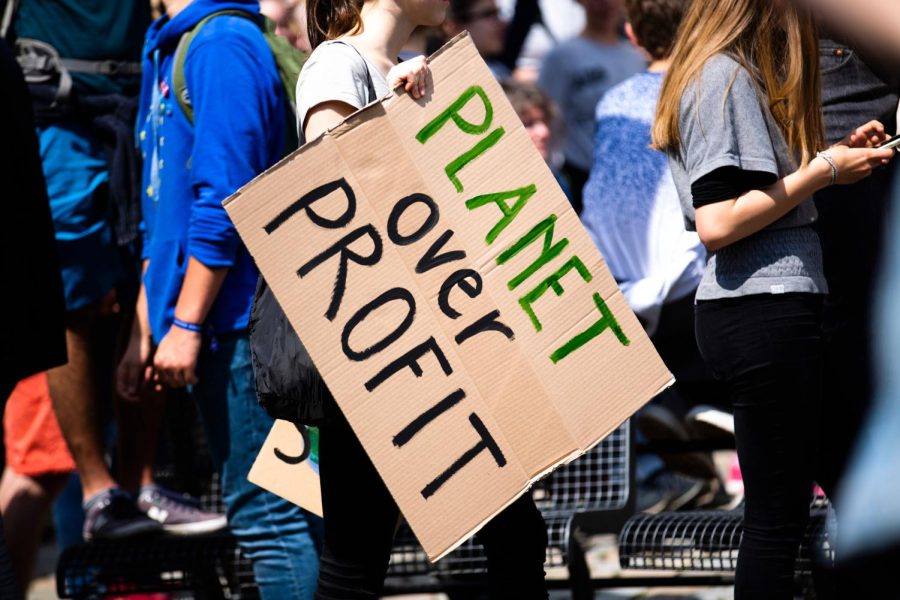Climate Change: We Aren’t the Problem
The myth of personal footprints and why reducing them will never fix the climate crisis.
February 22, 2022
I first learned about climate change on morning rides to elementary school. I can still hear Amy Goodman’s baritone news-reporter voice booming “Democracy Now!” out of the car radio. Although many of the nuances of the news reports would fly over my head, I’d ask my mom to explain what it all meant. When I heard about the climate crisis, I didn’t understand the full magnitude. It scared me, but I was happy to know about it.
I was first introduced to the idea of a personal footprint in my elementary school classroom when we were taught the three Rs: reuse, reduce, recycle. To enforce these notions of sustainability, we had week-long school events where students walked, biked, or carpooled to school every morning. All around the school, there were laminated pieces of paper taped to different bins, reminding us how to sort our garbage. It was maintained that I as an individual could do something about climate change, and that every action I took had a genuine impact, good or bad.
At first, I was excited about having a way to work against something so threatening and happy to know there was a way I could make a change. As I grew older, that belief in my own importance shifted into a sense of guilt and dreaded responsibility. I was constantly berated with the bad reality of the ice caps melting quicker and the temperature rising higher. I had absolutely no idea of what I could do because everything I was told would work since a young age wasn’t working.
The idea of a personal footprint was first pushed into the public eye around fifty years ago, in a 1971 PSA commercial that featured an indigenous man kayaking through a trash-ridden body of water, arriving at an interstate to commuters tossing their garbage out to the highway shoulder. The final sentence and main message of the PSA commercial were “People start pollution, people can stop it.” However, the people funding this message were corporations who pump out billions of plastic bottles yearly. For over 50 years, large companies have invested in convinving single consumers that the climate crisis is their fault.
The corporative message of a personal footprint was instilled in society to the extent of being taught to young children in schools. These corporations’ motivation is clear: to move the conversation of emissions away from themselves and onto a group that is bound to have discourse on how to proceed.
The notion of a personal footprint and the importance of individual sustainable actions are widespread, but statistics tell a different story. as 71% of greenhouse gas emissions between 1988 – 2017 were caused by the top 100 fossil fuel-producing companies. Even if the average person, making up the other 29%, was able to completely cut off all of their emissions, it would not be nearly enough to make the desperately needed environmental changes.
An effort to regulate emissions caused by corporations needs to be at the forefront of discussion when combating the climate crisis, not a broken solution that causes undue guilt on individuals. Putting a piece of paper into the recycling won’t have the impact that investing in legislators dedicated to holding these mass producers accountable will. You as an individual can make a change, but the reality of that change depends on how you apply yourself.

